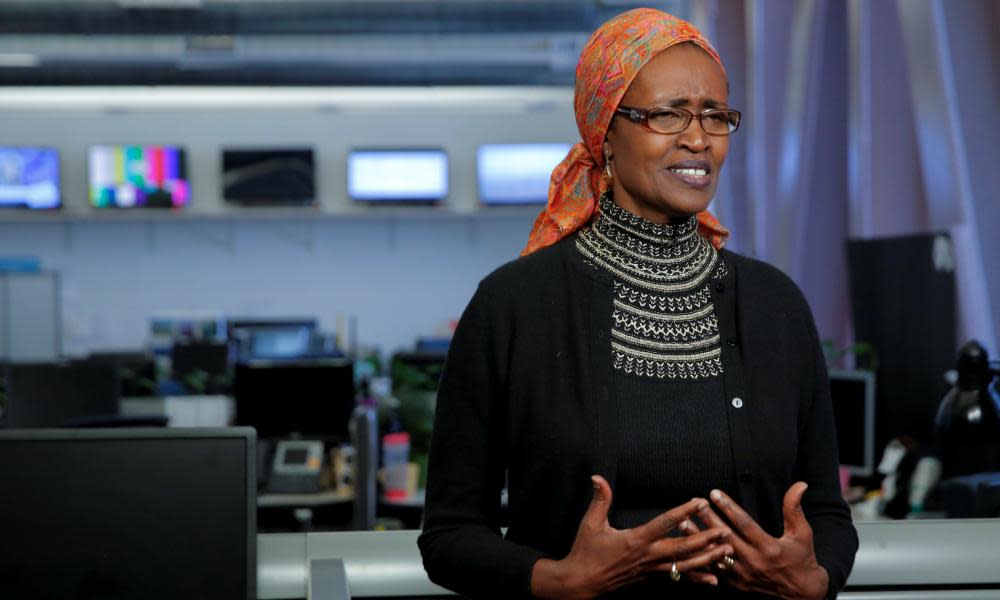Oxfam is not the only charity that needs to act swiftly to manage a crisis

It’s been a bad few weeks for the charitable sector. The revelations about the Presidents Club gala, which raised a reported £2m for charitable causes including Great Ormond Street Hospital, have been followed by Oxfam being accused of hushing up claims of sexual exploitation by its aid workers in Haiti, and sexual harassment in its shops. Save the Children has admitted firing 16 staff members over reports of sexual misconduct in the past year and Brendan Cox, the husband of the murdered MP Jo Cox has resigned from the two charities he set up in her memory after being publicly accused of sexual assault.
Crises can hit any organisation, but charities are particularly vulnerable, since the press and the public tends to hold them to higher standards.
Oxfam is not yet beyond the point of no return. But it needs to act swiftly and decisively.
In the private sector, the chief executive of an organisation in such a mess would have gone by now. It is impossible to see how the public will trust Oxfam again if Mark Goldring remains at the helm. Ambassadors Minnie Driver and Desmond Tutu have already withdrawn their support.
If Goldring is to stay, he needs to face the media, including its tough inquisitors, with sincerity. His video apology to the Associated Press failed to hit the mark and his Guardian interview smacks of a man looking for sympathy.
Penny Lawrence, the charity’s deputy chief executive, has already resigned. But a few resignations will not be enough to save Oxfam’s reputation. It needs to listen to voices outside the organisation, to grasp and address the public mood.
At the moment, Oxfam seems to be operating within a bubble. The whole situation has an air of inconvenience about it, as though Oxfam’s leadership team cannot believe they are being questioned.
Oxfam needs to work hard to regain the trust of its workers and remind them and the public of the tireless work they do
The Charity Commission has launched a statutory inquiry into Oxfam and the National Crime Authority is monitoring the situation, but the charity itself needs to commission a full external review, headed up by a trusted public figure. Winnie Byanyima, the executive director of Oxfam International, has already has said she will appoint an independent commission. This should be uncompromising and the findings should be fully published and swiftly acted upon.
One of the criticisms of Oxfam has been that it did not call in the police itself. It looks as though there was a culture of fear and/or a lack of expertise at the top, which could have stopped what was happening. Ironically, some experts have said Oxfam had been doing better than other NGOs in confronting sexual abuse – but there are serious questions about the organisation’s structure and governance.
A robust review, looking into all of its policies and safeguarding issues, is the least Oxfam can do to begin to restore the public’s trust. As an organisation, it needs to show it wants to change and is doing all it can to implement this. It may also want to consider issuing a proper apology via newspaper adverts to reach as many people as possible.
Having already lost more than 1,200 direct debits from supporters, Oxfam needs to remind those who support it, why they do so.
The organisation has thousands of good people working in poverty-stricken countries and in local areas, either driving aid programmes or staffing donation shops. In many ways, they are the ones who will feel most betrayed by the recent news. Oxfam needs to work hard to regain their trust and remind them – and the public – of the tireless work they do.
Oxfam also needs to look closely at its crisis management procedures and write a future plan. It has not had a firm grip on how to deal with these revelations, and has lurched from one bad decision to another.
Trustees can often hold excellent expertise and should also be part of this planning. All charities should now be asking themselves about what might be potential crises, how they should communicate, who is their spokesperson and whether they are properly trained.
It’s possible to prepare a holding statement and key messages in advance. But every charity should now be asking themselves whether they are sure their systems, policies and procedures robust enough and would stand up to scrutiny.
Neil McLeod is a crisis management consultant at PHA Media.
Talk to us on Twitter via @Gdnvoluntary and join our community for your free monthly Guardian Voluntary Sector newsletter, with analysis and opinion sent direct to you on the first Thursday of the month.
Looking for a role in the not-for-profit sector, or need to recruit staff? Take a look at Guardian Jobs.

 Yahoo News
Yahoo News 
